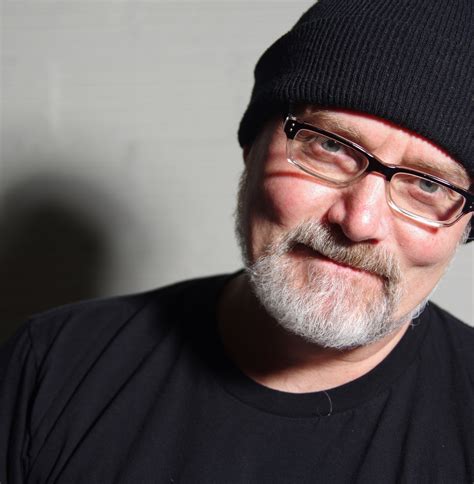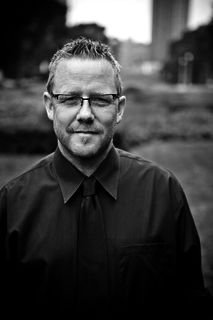Цитата Майкла Арнзена
Судя по его стилю, Джейсон Брэннон был темным двойником Рэя Брэдбери. Он больше заботится о характере и реализме, чем большинство писателей, которых я читал, и его сюжеты текут, как хорошо срежиссированная музыка. В самом деле, сочинение Брэннона имеет классический оттенок, напоминающий лучшие традиционные произведения в этом жанре, даже когда он стремится к выворачивающему наизнанку ужасу и пыткам в крайних случаях.
Связанные цитаты
В молодости я был одержим Рэем Брэдбери, и я думаю, что его рассказы больше, чем кто-либо другой, сформировали меня как рассказчика, хотя, когда я читаю их сейчас, многие из них кажутся чрезмерно сентиментальными. Но это, вероятно, писатель, о котором я думал больше всего, хотя мне не обязательно нравятся многие его работы.
Мне трудно писать. Большинству писателей трудно писать. Мне приходится тяжелее, чем большинству, потому что я ленивее большинства. [...] Другая моя проблема - это страх писать. Процесс письма ставит вас в противоречие с самим собой, вот почему я думаю, что писатели старательно избегают писать. [...] Не писать - это скорее психологическая проблема, чем проблема письма. Все время, пока я не пишу, я чувствую себя преступником. [...] Ужасно чувствовать себя преступником каждую секунду дня. Особенно когда это продолжается годами. На самом деле гораздо спокойнее работать.
Рэй Брэдбери опубликовал свой первый рассказ за 29 лет до моего рождения. Он зарекомендовал себя как международный писатель задолго до моего приезда. Когда моя мама была на девятом месяце беременности мной, отец читал ей вслух Брэдбери, а я внимательно слушал, еще в утробе. А я впоследствии стал его биографом.
Иногда встречаются писатели, которые могут сочетать и сюжет, и стиль. Они, конечно, лучшие. Вы получаете захватывающий вид, и вы также можете посмотреть на него с заднего сиденья Cadillac с шофером. В области фэнтези писатели, способные сочетать историю как повествование с историей как стилем, встречаются еще реже. Но есть несколько... покойный Теодор Стерджен, ранний Рэй Брэдбери... и Ричард Кристиан Мэтисон. Блестящий чип от старого блока.
Я хорошо знаю Дональда Трампа. У нас никогда не было общих ценностей, у него и у меня. Но я уважал его способность все изменить. Поэтому я уважаю тех, кто может изменить ситуацию и добиться успеха. Я думаю, что стиль общения президента - самая сложная вещь, потому что он действительно заботится, люди, которые его знают, знают, что ему не все равно. Но его стиль общения, его боевой подход, элементы эгоизма, которые, очевидно, присутствуют во всех нас, но, кажется, иногда их легче увидеть в президенте, чем в других людях, к сожалению, мешают его способности руководить.
У меня никогда не было любимой книги! Мне нравились самые разные вещи — научная фантастика, поэтому я читал Хайнлена и Рэя Брэдбери, а также мне нравилось читать о таких же детях, как я, поэтому я читал Джуди Блюм, Норму Кляйн, Паулу Данцингер и многих других писателей. Я также читал Джеймса Хэрриота!
Все писатели документальной литературы, нравится им это или нет, являются переводчиками. Переводчик — идеальный журналист. Лучшая журналистика стремится донести важную идею или историю до аудитории, которая очень мало о ней знает и требует перевода. Чтобы сделать это успешно, писатель должен фильтровать идею через призму своего глаза, своего ума и своего стиля письма.
Я начал играть классическую музыку и до сих пор это делаю. Я думаю, что музыка в конечном счете находится на теоретическом уровне, она заключается в сборе и изучении как можно большего словарного запаса. Это как писать. Это похоже на писательство, потому что чем больше вы читаете, тем больше вы слышите, как люди описывают вещи. Чем больше вы впитываете словарный запас, тем больше у вас возможностей для точного и яркого самовыражения.
Есть фантастическая тысячестраничная книга Дэвида Томсона о [Дэвиде О. Селзнике]. Опять же, это не лучший аргумент и не лучшая реклама его истории, потому что большинство людей не собираются читать книгу в тысячу страниц. Но я чувствую взлеты и падения и работу [Майера] — не только фильмы, но и заметки, объем написанного — он такой страстный, и это действительно захватывающе.































